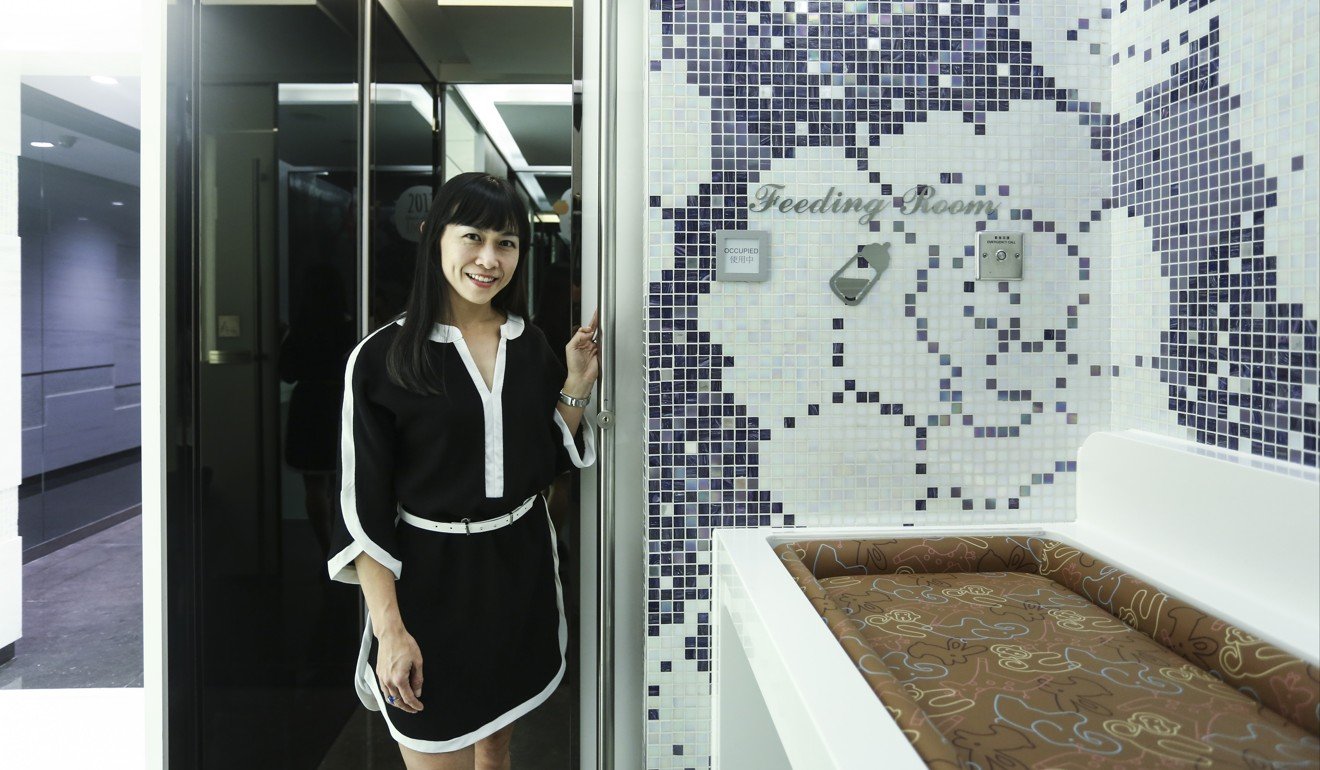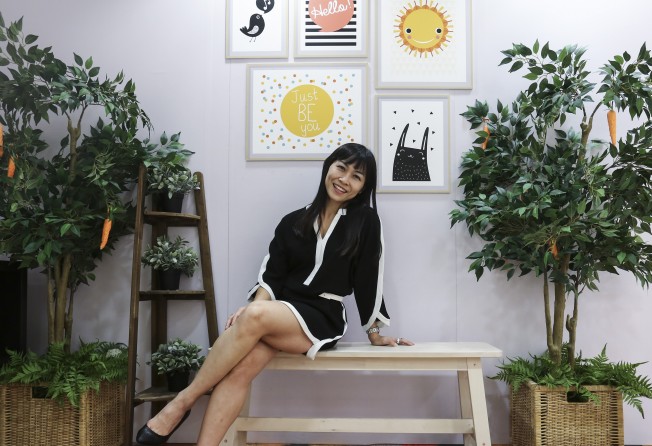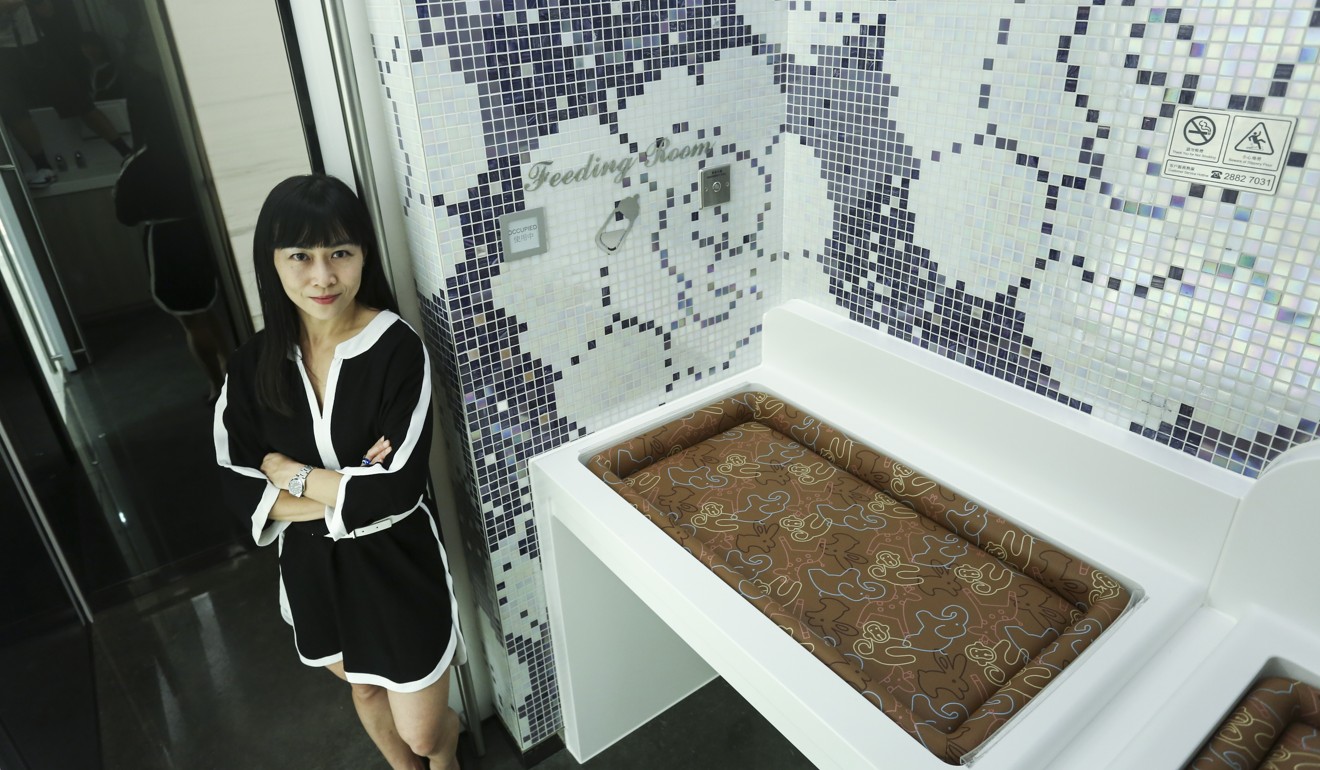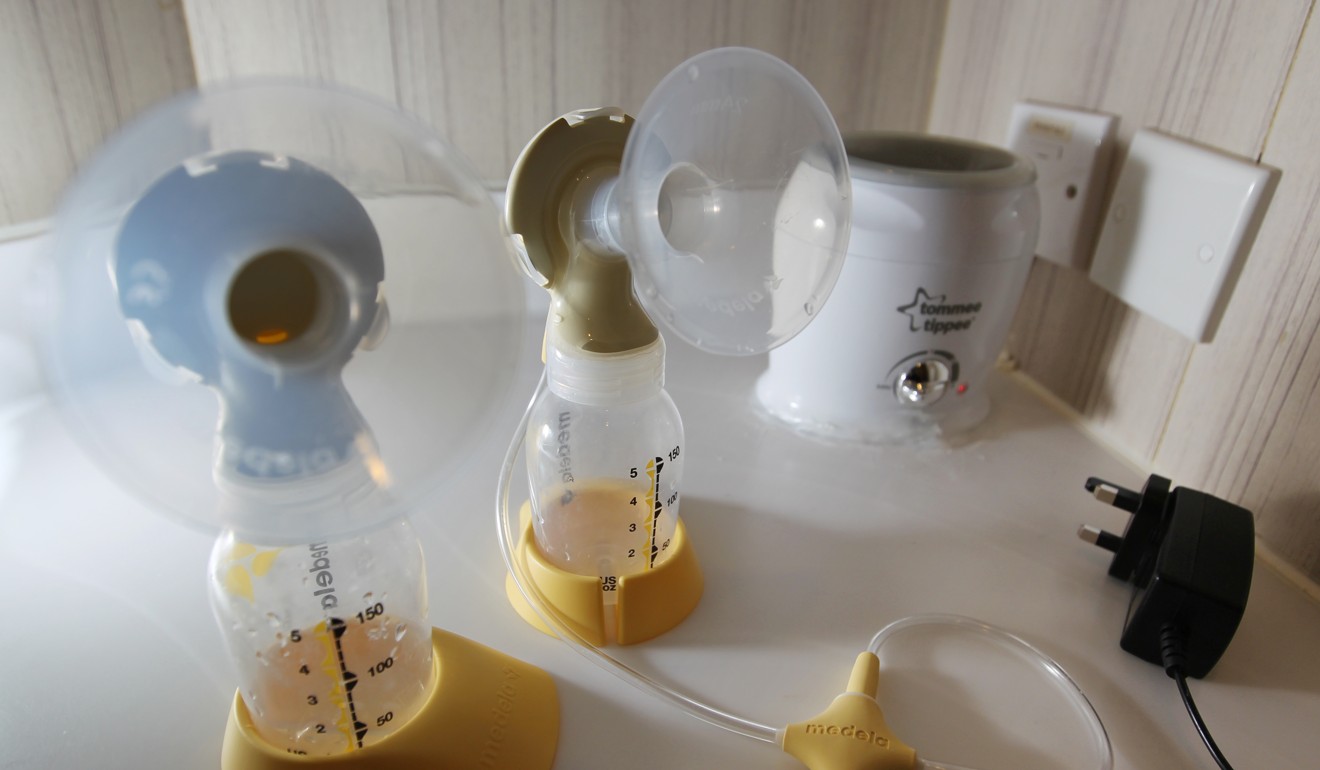
Breastfeeding advocate has appetite for awareness in Hong Kong of the needs of new mothers
Breastfeeding mothers face a myriad of challenges in a city where time and space come at a premium, says their association chairwoman Jannie Leung

The night Jannie Leung Hoi-ting returned home from hospital after giving birth to her daughter seven years ago, she tried to bottle-feed her newborn as advised by her paediatrician. But she struggled to get the milk formula to the right temperature.
“It was either too cold or too hot. I was so confused,” Leung, now chairwoman of the Hong Kong Breastfeeding Mothers’ Association, recalled. “My daughter was crying like crazy, so I gave up and just breastfed.”
Leung breastfed her child until she was three years old. “It helped me bond with my daughter. She always says I am her favourite,” she said.
The advocate has breastfed in restaurants, at work and even in church, and she rarely attracted any glare from other people.
But not many breastfeeding mothers in Hong Kong are as lucky as Leung.
A survey by the association last month found that of 4,860 breastfeeding working mothers polled, over 30 per cent had encountered unpleasant experiences or had been discriminated against for expressing breast milk at work.
Some of the respondents said they had been asked to pump breast milk in the bathroom or were questioned by their supervisors as to why they continued to breastfeed a year after giving birth.
As the first week of August marks World Breastfeeding Week, Leung tells City Weekend that although breastfeeding is finally gaining ground in the city, there are still many barriers to overcome.

The first week of August marks World Breastfeeding Week. What does it mean for breastfeeding mothers and society as a whole?
The theme of this year’s World Breastfeeding Week is sustaining breastfeeding together. Breastfeeding mothers need support from their families, supervisors, colleagues and members of the public. Although breast milk is gifted to a woman’s body, mothers who are new to breastfeeding might still face lots of obstacles, such as pumping milk at work. That is why support from outsiders is essential.
Apart from serving as a celebration of breastfeeding mothers, the week is a reminder to the public that breastfeeding is normal and natural. When I was a kid, not many mothers breastfed their babies because of the popularity of formula milk. But in my grandmother’s generation, breastfeeding was very common. Now we want to bring back the breastfeeding trend again.
Future mothers can be educated more on breastfeeding through World Breastfeeding Week. I would say most women do not think about whether they should breastfeed their babies or not until they actually get pregnant. But if these mothers, especially young women, receive breastfeeding education earlier, they will be better equipped and have one less thing to worry about when they are pregnant.

Can you share with us some of your breastfeeding experiences?
There was a time when my best friend wanted to cover me while I was breastfeeding my daughter in public. She said it was not very appropriate. I had no hard feelings because she is my best friend. I just told her that I needed to feed my daughter.
My mother had told my daughter that she was too old to be breastfed. She was one to two years old at that time. I then told my mother that she was still little and could not do without breast milk yet.
In general, however, I was a lucky breastfeeding mother because my family and co-workers were very supportive. I happened to have a supervisor who was a breastfeeding mother too, so she was very understanding. I seldom received glares from people when I was breastfeeding in public. Most of the time I just wore nursing clothes, which allowed me to be discreet. I remember I was in a conference once where a friend asked if she could hold my baby. I was actually breastfeeding at the time, so she was shocked when she found out, as she thought my baby was sleeping.
A survey by your association last month showed 30 per cent of breastfeeding working mothers did not see positive attitudes from their co-workers. Breastfeeding has been promoted quite extensively in Hong Kong, so why do you think there is still a lack of support in the workplace?
I think it is because the public does not fully understand breastfeeding. Some people might question if their co-workers are making excuses to take a break from work or being lazy. But to mothers, it is their instinct to feed their children whenever they need it. I hope employers and colleagues can understand that breastfeeding is just a part of the journey when raising a child, and they should be more considerate of breastfeeding working mothers.

In June, the government launched the voluntary Hong Kong Code of Marketing and Quality of Formula Milk and Related Products and Food Products for Infants and Young Children. Can you tell us more about this code and why you think it is important to the breastfeeding community?
The code provides voluntary guidelines for manufacturers and distributors of formula milk, for feeding bottles, teats and pacifiers, and food products for infants and young children aged 36 months or below. It aims to protect breastfeeding mothers and contribute to the provision of safe and adequate nutrition for infants and young children.
It is based on international guidelines drafted by the World Health Organisation. The draft said the code would ban promotions for formula, feeding bottles and pacifiers. But I guess the Hong Kong government has to strive for a balance between different stakeholders, and that is why it has been launched on a voluntary basis.
If it were mandatory, the code would be pretty strict for the formula milk industry. But it could stop misleading information being shown in commercials. I find advertisers rarely explain the production process of milk powder and how it is different from breast milk, which I think is really important to consumers and mothers. The WHO’s research has shown that the more formula milk commercials in a country, the lower breastfeeding rate it has.
I hope employers and colleagues can understand breastfeeding is just a part of the journey when raising a child
Last year, a taxi driver was arrested after posting a picture online of a breastfeeding passenger. Last month, a man was held by police for allegedly replacing two bottles of breast milk belonging to a working mother with fresh milk in their office. What are your reactions to these incidents?
I think they show that the public needs to do a better job respecting the breastfeeding community. I guess the taxi driver did so out of curiosity, but why was he so curious about it? I think because he was not very educated on breastfeeding and was purely surprised to see a mother breastfeeding her kid in public. He might also have forgotten that by posting the pictures online he was infringing on the mother’s privacy.
And, of course, when asking the public to respect breastfeeding mothers, we also have to respect the public. Sometimes I too tell my breastfeeding mother friends not to be too exposed in public.
Regarding the stolen breast milk incident, I think it was an individual case. What I am concerned about is whether the fresh milk was suitable for the baby.
When do you think Hong Kong will become a breastfeeding-friendly society?
It is hard to say when breastfeeding will become normalised. Compared to what Hong Kong was like 10 years ago, the situation has improved tremendously, in terms of public facilities and social attitudes.
Our survey showed that more working mothers are able to pump milk at work compared to a year ago. But we should not be so easily satisfied.
The survey also showed that 60 per cent of working mothers can take two 30-minute breaks to express breast milk within an eight-hour period at work. Some might say that is already a large percentage, but I say: what about the remaining 40 per cent? That is why we need to keep promoting breastfeeding.
FUN STUFF
What is the craziest thing you have done?
I was breastfeeding in a church. I was lining up to receive communion but my daughter needed to eat. It was a very inconvenient time.
Do you have a celebrity crush?
I do but I can’t tell you. Because my husband might not be very happy about that when he reads this article.
Can you share with us the worst date you have ever been on?
When I was still a university student, I met up with this guy whom I knew from instant messaging service ICQ. He was just very different from what I expected. I felt very strange on our date. I guess not everything is real on the internet because you can do Photoshop. Since then I have never met up with anyone I know via the internet.
What do you usually do for fun?
I usually go to the beach and ride horses with my family.
What is the sweetest thing your daughter has said to you?
She always says I am her favourite.
Where is your favourite public nursing room?
Probably the one in Lee Garden Two in Causeway Bay. It is well liked by my other breastfeeding mother friends. The nursing room has private cubicles and sinks.
What kind of drink or food did you find difficult to give up when you were pregnant?
Alcohol and coffee. I am not a big drinker but I sometimes have wine at dinner, while coffee is what I drink almost every morning.
What is your hidden talent?
Not many people know I actually dance.
Do you have any pets?
I have four rescued dogs and two turtles.